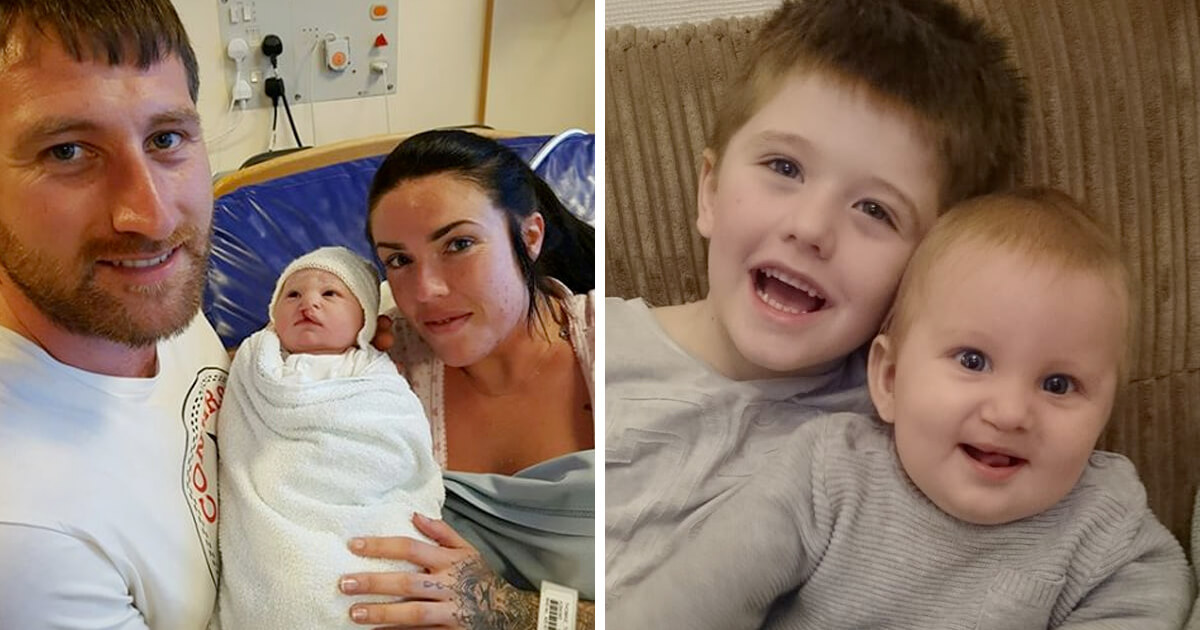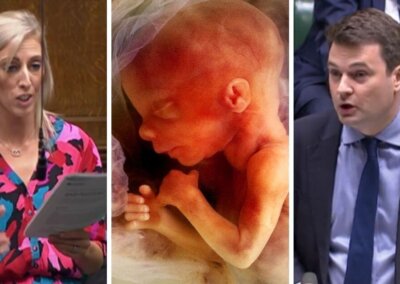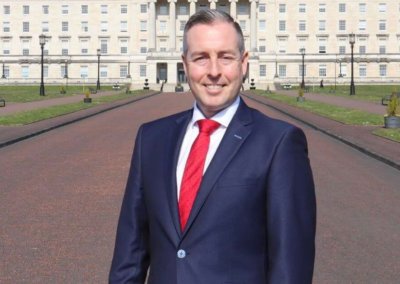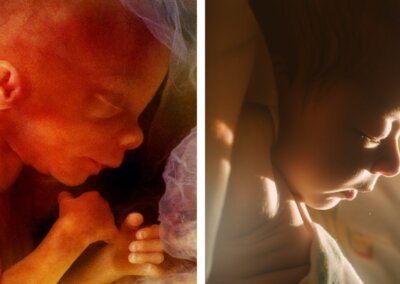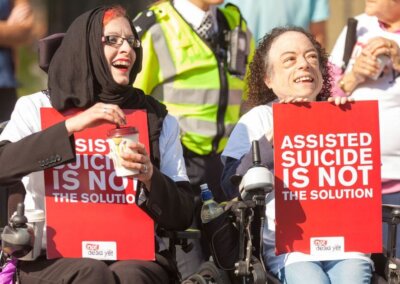Mothers of children born with a cleft lip have spoken out in horror that Northern Ireland’s new extreme abortion regime allows babies with the condition to be aborted up to birth.
Cleft lip and palate is a condition which causes a small or wide gap in the roof of the mouth, upper lip or both. It is usually easily fixed by minor surgery.
Terri Thomas was angry and shocked when she first heard that the Conservative Government’s proposed abortion framework would introduce disability-selective terminations for cleft lip and palate, up to birth, in Northern Ireland.
She told Right To Life UK: “To read that some people [in Northern Ireland] may now consider a termination simply because of a cleft lip or palate is so upsetting”.
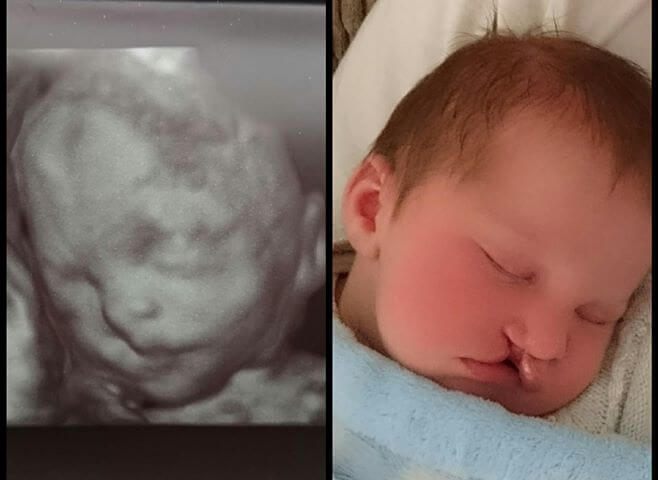
Terri said when her son, Joseph Daniel, was diagnosed with the condition she had lots of questions but never considered an abortion.
Following the birth of her son, the mother of two said: “To me he was perfect, his lip didn’t bother me in the slightest, I just felt pure love.”
Terri shared that Joseph is now almost two-years-old and has since had surgery on his lip, which has healed quickly and his scar is barely noticeable.
She added that “he is such a happy, clever and inquisitive little boy! He makes me smile every day.”
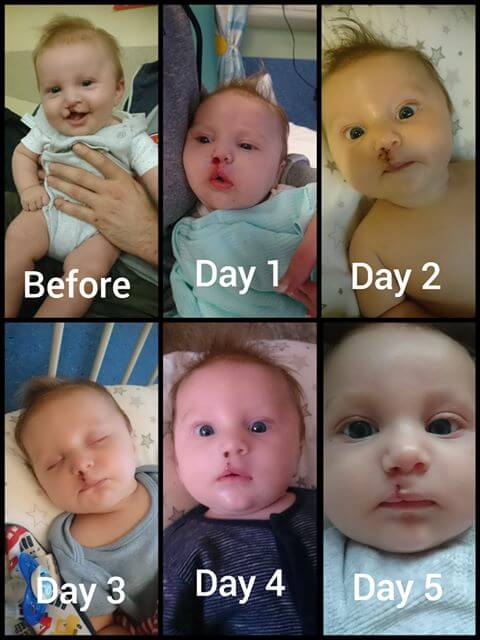
Another mother revealed she was left feeling distraught and heart-broken when she discovered the change in the law would mean unborn babies could be aborted just because they had a cleft lip.
Lauren Bolt’s daughter, Lily Grace, was only diagnosed with the condition three weeks before she gave birth to her. Under the new extreme regime in Northern Ireland, it would have been legal to abort her.
The day her daughter, Lily-Grace, was born she said: “I set eyes on the most precious little girl with a unique cleft lip that looked like a love heart.”
Lily-Grace, 2, has also had corrective surgery on her lip. Lauren said “Lily-Grace is the happiest, most beautiful little girl ever! She has so much character and I completely forget she was ever born with a cleft lip.”
Terri and Lauren both said they had received great medical support from healthcare professionals. The two mothers would encourage pregnant mothers, particularly in Northern Ireland, with children diagnosed with cleft lip and palate to keep their unborn babies and seek that same support.
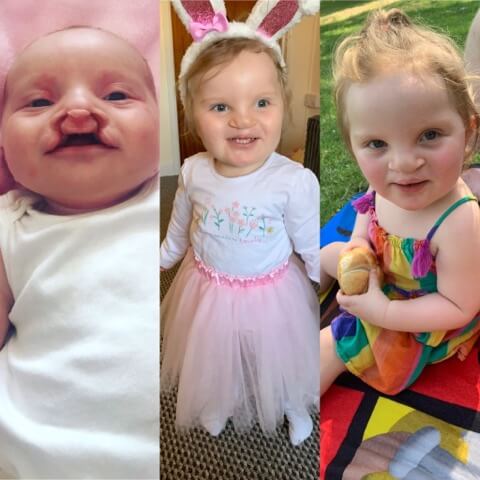
What has changed in Northern Ireland?
Last year, in the absence of a functioning Northern Ireland Assembly, politicians in Westminster voted to impose an extreme abortion regime on Northern Ireland.
332 MPs in Westminister voted through an amendment to force abortion on the province, despite it remaining a devolved issue in Northern Ireland and the fact that every single MP representing Northern Ireland in Westminster voted against the amendment.
Since, then the Conservative Government proposed an extreme framework for abortion in Northern Ireland, which goes far beyond the existing law in England and Wales, and Scotland – and far beyond what is legally required by the Northern Ireland (Executive Formation etc) Act 2019.
The Government was not required by the Act to introduce abortion for cleft lip, or other disabilities such as Down’s syndrome, to Northern Ireland. Yet, to the dismay of mothers of cleft lip babies and other disabilities, the Conservatives have now introduced disability-selective abortion right up to birth.
Under the new abortion regime (2.1.3) abortion for disabilities will be available through to birth “if the child were born, it would suffer from such physical or mental impairment as to be seriously disabled.”
In England and Wales, wording that has appeared similarly restrictive (‘that there is a substantial risk that if the child were born it would suffer from such physical or mental abnormalities as to be seriously handicapped’) has in practice allowed for abortion for disabilities including Down’s syndrome, cleft lip and club foot.
In England and Wales – where abortion is available up until birth if a baby has a disability – people with disabilities are unjustly and disproportionately targeted by abortion legislation (see video segment here from the BBC Victoria Derbyshire Show where a mother was offered a termination at 38-weeks gestation).
Cleft lip and palate & Down syndrome abortion under-reported
In England and Wales, the number of abortions performed on unborn babies with cleft lip and palate has accelerated in recent years.
The new figures, released in response to a parliamentary question by pro-life MP Fiona Bruce, revealed there were 10 terminations for those with the condition in 2011 with the figure rising to 25 in 2018 – representing a 150% increase.
Additionally, findings from a European register suggest abortions for cleft lip and palate can be over ten times more common than what is being reported.
Eurocat, which was set up to register congenital abnormalities across 23 countries, found that 157 unborn babies, with the condition, were aborted in England and Wales between 2006 and 2010. The Department of Health only recorded 14 such abortions.
Joan Morris, national coordinator for Eurocat and professor of medical statistics at Queen Mary, University of London, said the group also found the number of babies aborted in 2010 for Down’s Syndrome was nearly double that recorded officially – 886 compared to 482.
The discovery suggests that the number of unborn babies being aborted because of a perceived disability is significantly higher than what is being reported.
The Department of Health confirmed in a 2014 report that some disability abortions had been wrongly recorded.
Lord Shinkwin, who himself has a disability, heavily criticised the move citing the impact that it will have on people with disabilities.
Speaking in the House of Lords he said: “I am good enough to sit in your Lordships’ House, but this Bill suggests that someone diagnosed before birth with a disability such as mine in Northern Ireland would only be considered good enough for the incinerator.”
“Because that is the brutal message of this Bill: if you are diagnosed with a disability before birth in Northern Ireland, you will not just be worth less than a non-disabled human being; you will be worthless—you would be better off dead. What a dreadful message for this House to send the people of Northern Ireland, without even having consulted them in advance.”
A spokesperson from Right To Life UK, Catherine Robinson said:
“As a society we should be empowering those with disabilities, and take pride in the positive contribution they make to our country. The new extreme abortion regime in Northern Ireland undermines this objective by allowing abortions solely based on the unborn child being diagnosed with a disability, right up to birth, for the first time in Northern Ireland.
“To ensure that those born with cleft lip, such as Joseph and Lily-Grace, feel valued members of British society, we are urging MLAs to introduce new legislation that will repeal the extreme measures in Northern Ireland.”


